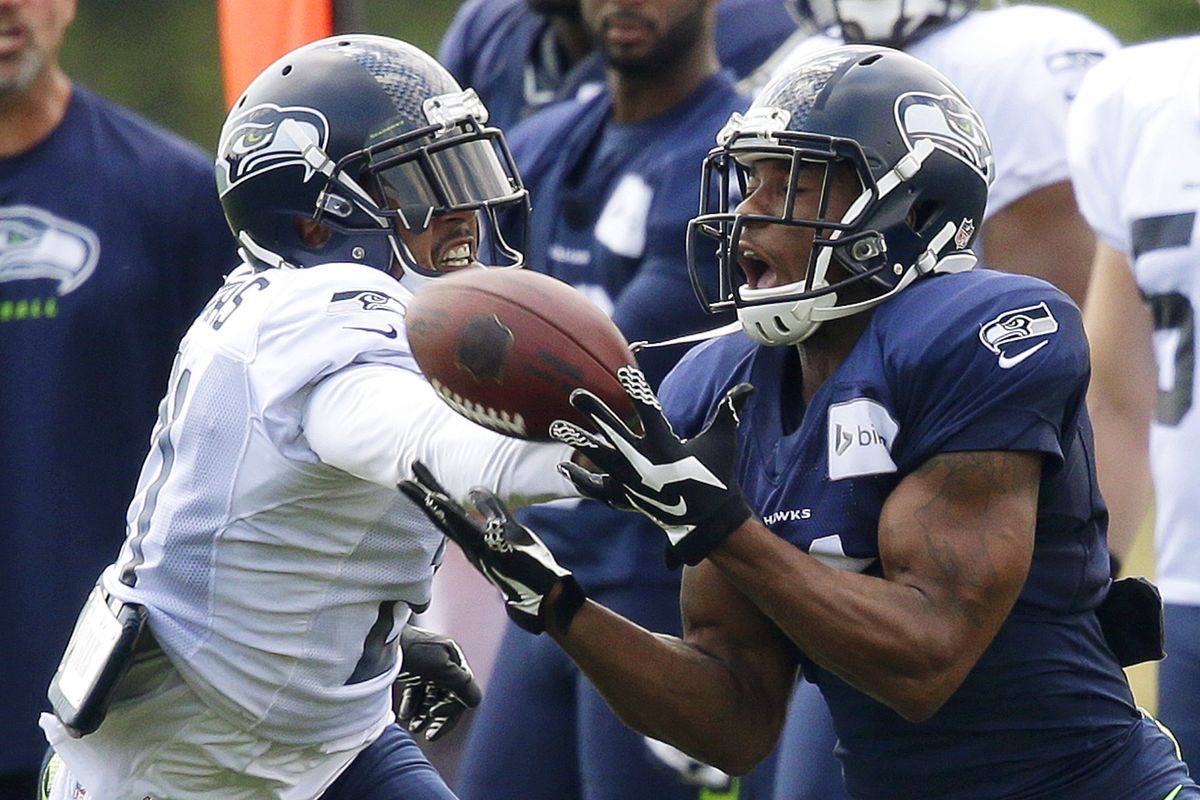Seahawks seeking replacement for Tate as punt returner

RENTON, Wash. – Golden Tate is gone, and in his wake remains one of Seattle’s few uncertainties: Who will return punts?
The answer, as well as the level to which the new returner performs, could go a long way in defining this season. What’s known is that Earl Thomas, Doug Baldwin, Percy Harvin, Richard Sherman and Bryan Walters are all in the mix, with Thomas as the early leader. What’s not known is if they’ll be able to match Tate’s impact last year.
The Seahawks consider a punt return their first offensive play, and their goal is to pick up a first down on every return. The effects of consistently doing that add up: Over the course of a season, 10- or 15-yard returns can mean the difference between a couple of close victories and a couple of close defeats.
To stress the importance of punt returns to players, the Seahawks tracked the success of offenses and defenses for the past three years in relation to starting field position. The results, not surprisingly, showed that better field position meant more scoring for offenses and worse field position meant more stops for defenses.
When an opposing offense started a drive inside its own 20-yard line last year, for example, the Seahawks held them scoreless 84 percent of the time. And if Seattle’s offense started a drive inside an opponent’s 40-yard line, the Seahawks scored 87 percent of the time.
Tate had special traits as a returner. He had the unique ability to track a punt, glance down at oncoming defenders, then look up and relocate the ball. He rarely signaled for fair catches. He never muffed a punt. Russell Wilson called him quick as a cat.
He averaged 11.5 yards per return, ninth-best in the NFL last season.
His 32-yard return from inside his own end zone against Houston led to Seattle’s game-winning field goal in overtime. His 71-yard return in the third quarter against Tampa Bay jolted the crowd and his teammates. Even though the Seahawks settled for a field goal and still trailed Tampa by a touchdown, many of Tate’s teammates called his return the defining moment in a 21-point comeback.
But it was harder to assess Tate’s influence on a smaller scale. What if he had a 15-yard return but the Seahawks punted? What impact did that have?
Heath Farwell, the Seahawks’ veteran special-teams captain, calls those “hidden yards” – returns that switch field position or put the offense in field-goal position even if it picks up only one first down.
“There’s so much hidden yardage that we can steal,” Farwell said, “and it has such a big impact on the game.”
The Seahawks couldn’t afford to keep Tate, and the biggest loss might be his return ability. But the Seahawks think the structure is in place for whomever wins Tate’s old job to succeed.
“It doesn’t matter who we have back there,” Farwell said. “We’re going to be in the top five in returns.”